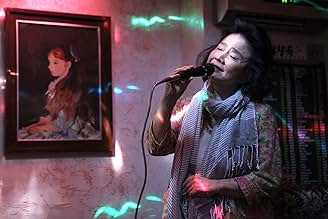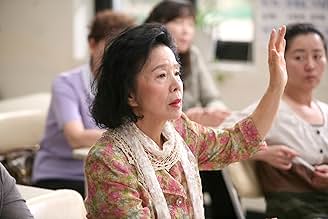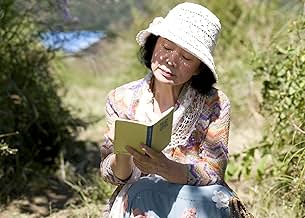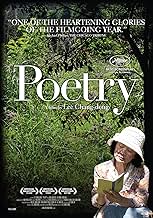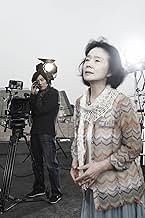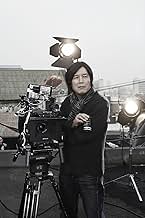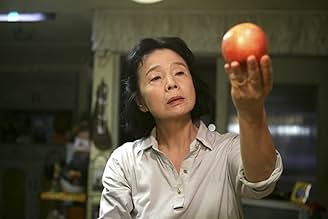A sixty-something woman, faced with the discovery of a heinous family crime and in the early stages of Alzheimer's disease, finds strength and purpose when she enrolls in a poetry class.A sixty-something woman, faced with the discovery of a heinous family crime and in the early stages of Alzheimer's disease, finds strength and purpose when she enrolls in a poetry class.A sixty-something woman, faced with the discovery of a heinous family crime and in the early stages of Alzheimer's disease, finds strength and purpose when she enrolls in a poetry class.
- Awards
- 27 wins & 25 nominations total
- Director
- Writer
- All cast & crew
- Production, box office & more at IMDbPro
Storyline
Did you know
- TriviaThe idea for the film had its origin in a real-life case where a small town schoolgirl had been raped by a gang of teenage boys. When director Lee Chang-dong heard about the incident, it made an impact on him, although he hadn't been interested in basing a film on the actual events. Later, during a visit in Japan, Lee saw a television program in his hotel room. The program was edited entirely from relaxing shots of nature, "a peaceful river, birds flying, fishermen on the sea with soft new-age music in the background," and a vision for a possible feature film started to form. "Suddenly, it reminded me of that horrible incident, and the word 'poetry' and the image of a 60-year old woman came up in my mind."
- ConnectionsFeatured in At the Movies: Cannes Film Festival 2010 (2010)
Featured review
What a wonderful film! To give my personal answer to one interviewer's question "Do you regard cinema, too, to be a dying form?" to the director Lee Chang-Dong. I believe (and deeply hope) that as long as films like Poetry are being made cinema will continue to flourish because it is important. It will continue to exist as long as humans exist because they are about being human. I was struck by how masterfully two sides of our humanness were presented in the film. On the one hand, it is about our search for beauty, as beauty can only be experienced if something of our own potential beauty responds to the beauty around us. There is something spiritual in this as Beauty and Truth are essentially one. On the other hand, there is the human predicament. That includes the pro and cons of the fact that we always have the choice to decide if we act ethically or not. That means if we actually say Yes to what is intrinsically our positive potential, or we say No and harm others, our environment and as a kind of end result, ourselves. What for me links the two is impermanence. Old age, illness and suicide as it is shown in the film. "Everything that is born will have to die" goes a very old Buddhist saying, and that happens no matter if we like it or not. At the same time, would we experience beauty if everything was to exist forever? Is it not because a beautiful flower grows out of a very simple looking seed in spring and then withers away after some weeks that it can become so precious to us? Without impermanence there is, one could say, by definition no beauty. Both are somehow the two sides of the same metaphorical coin. The same is true about this film. It still lingers on in my heart and mind weeks after I saw it. Very much like a true and wonderful poem, for example Rainer Maria Rilke's First Duino Elegy. It is is just about that, the wonder and horror of beauty.
- How long is Poetry?Powered by Alexa
Details
- Release date
- Countries of origin
- Official sites
- Language
- Also known as
- Thi Ca
- Filming locations
- Production companies
- See more company credits at IMDbPro
Box office
- Budget
- ₩1,300,000,000 (estimated)
- Gross US & Canada
- $356,149
- Opening weekend US & Canada
- $18,900
- Feb 13, 2011
- Gross worldwide
- $2,539,040
- Runtime2 hours 19 minutes
- Color
- Sound mix
- Aspect ratio
- 1.85 : 1
Contribute to this page
Suggest an edit or add missing content



